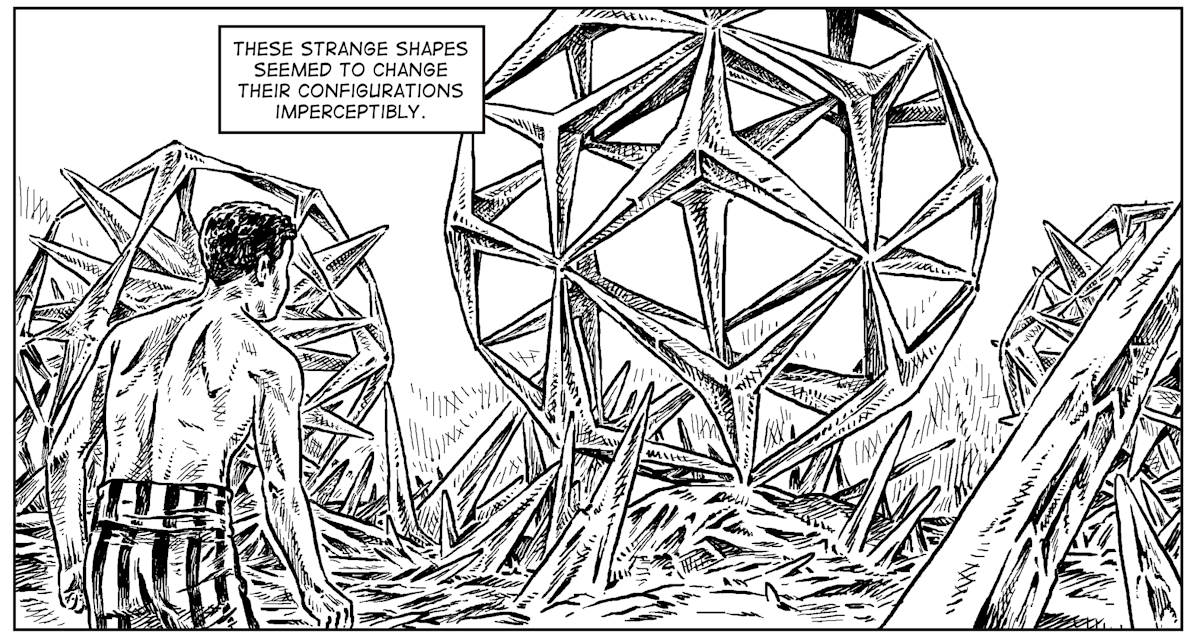‘Black Water Crossing’ is an edited excerpt from a forthcoming comic, entitled Lovecraft in India, by Jai Undurti and Harsho Mohan Chattoraj. The story subverts an original story by HP Lovecraft, with variations that draw on themes of colonial power and revolution.
About the comic
Jai Undurti writes:
The story’s premise is that sometime in the 1930s, HP Lovecraft is recruited by a mysterious wing of British intelligence which sends him to Calcutta to infiltrate a spiritual circle. This circle is suspected to be a front for Indian freedom fighters plotting an occult uprising.
The graphic novel contains an extended episode which is a very broad adaptation of Lovecraft’s short story Dagon. In this adaptation, the framing story has been altered. Here, the narrator is a Bengali revolutionary who is apprehended after assassinating a colonial officer.
His actions are based on the activities of real-life organisations such as the Anushilan Samiti which operated under the guise of a fitness club. The plot also is connected with the sub-genre of lost continents such as Mu, and in general with secret knowledge. For instance, the narrator is also supposed to be a ‘native informant’ for authors such as Colonel Churchward.
The narrator is condemned to be transported to the Andaman Islands which was used by the British as a vast penal colony, after near exterminating the native islanders. The actions described in the original story are set on this sea voyage, while in an uncharted region of the Andaman sea. The island and the crossing were collectively known as Kalapani or black water and became synonymous with torture, madness and death.
The graphic novel is due to be published by Syenagiri in 2024.
For more information, visit the authors’ pages: Jaideep Unudurti and Harsho Chattoraj
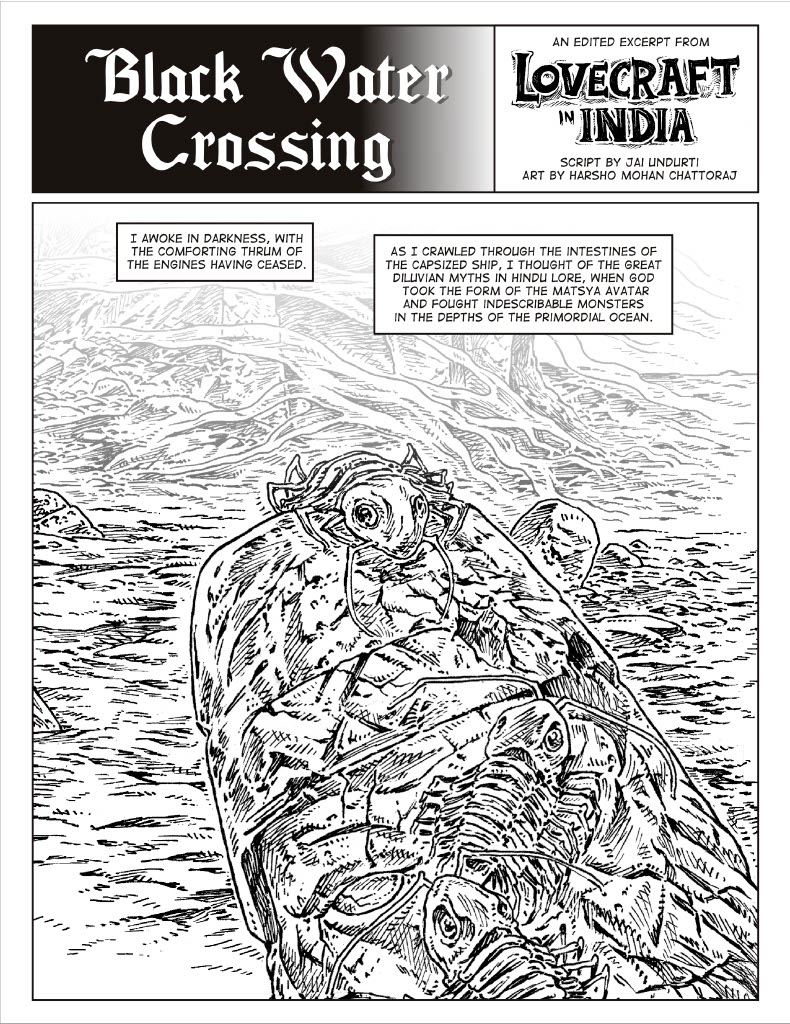
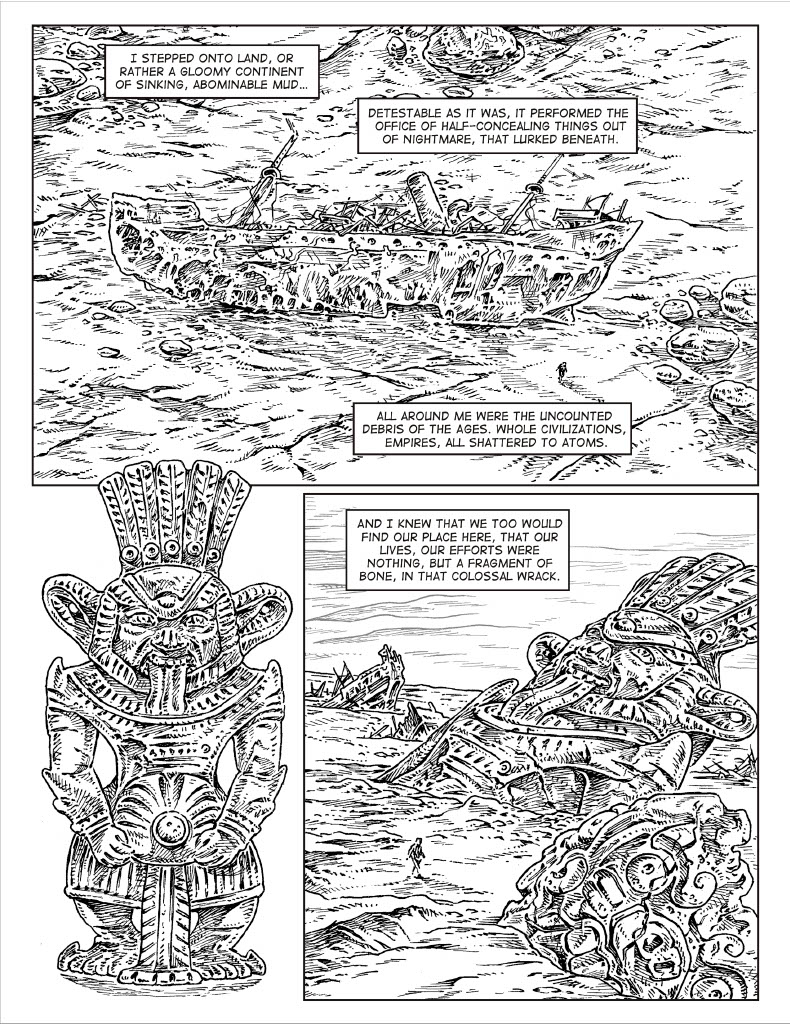
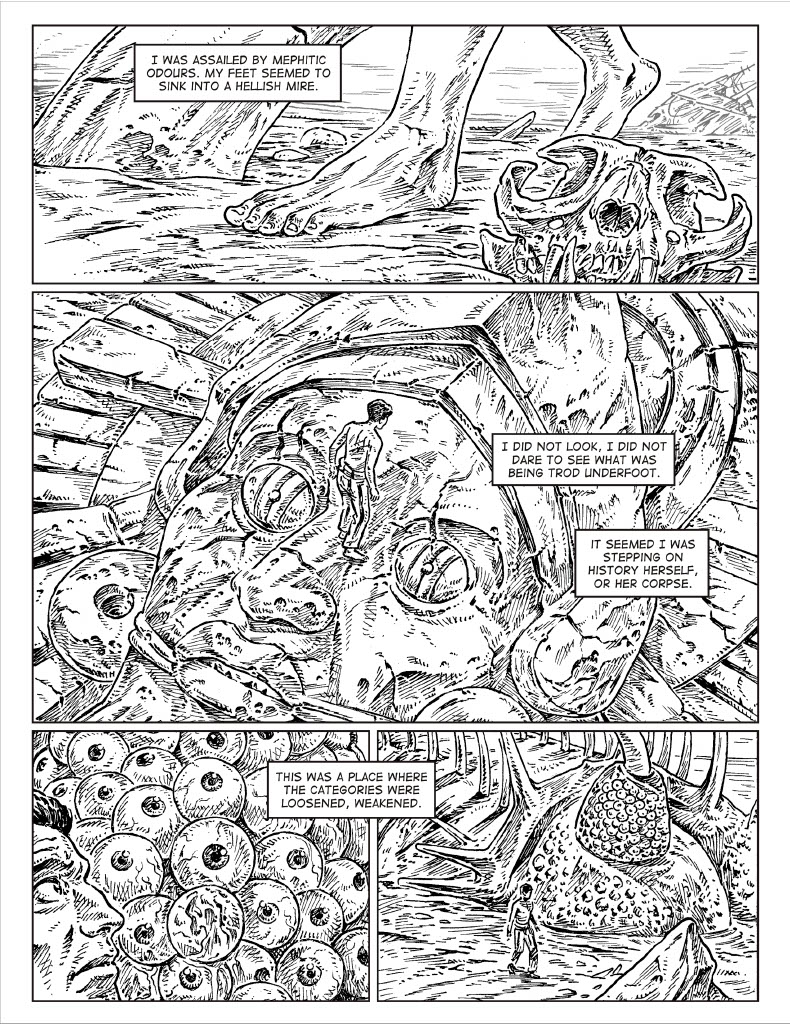
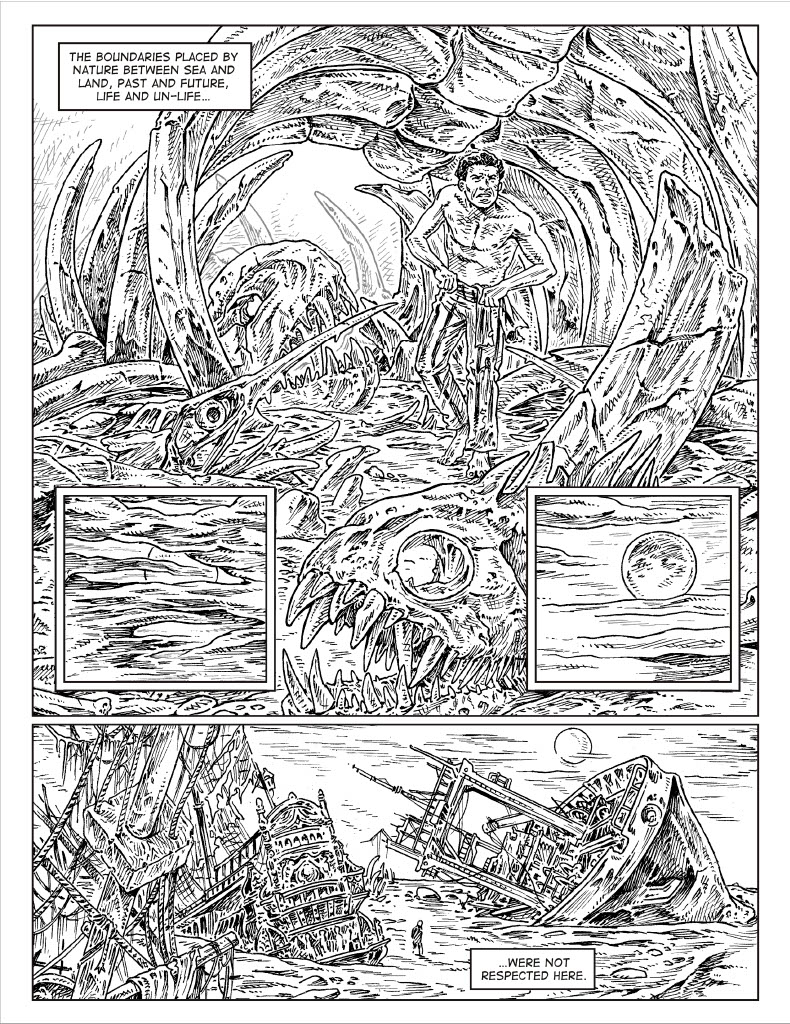
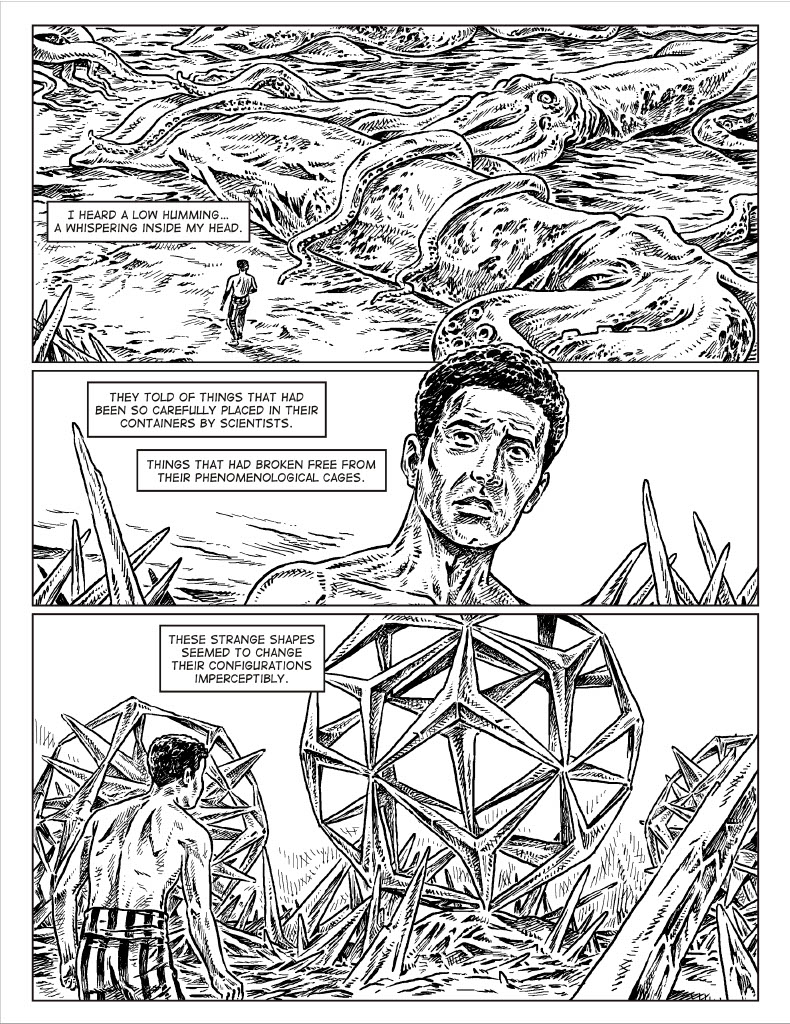
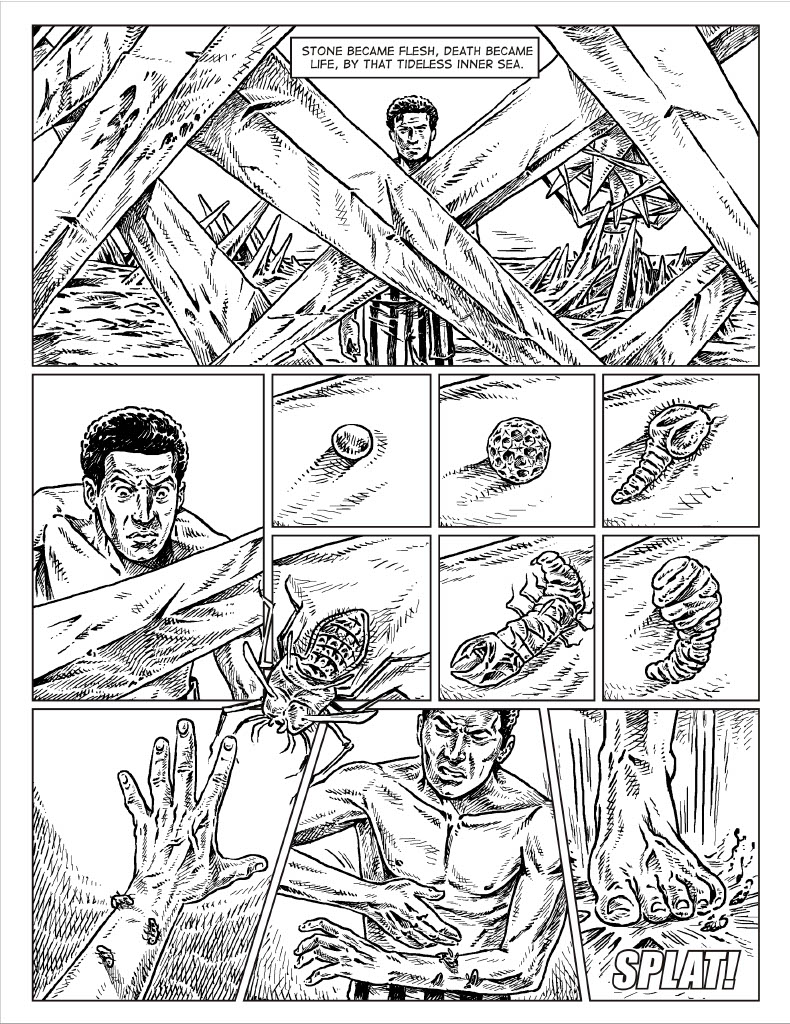
This article is part of our season on Strange Natures.
